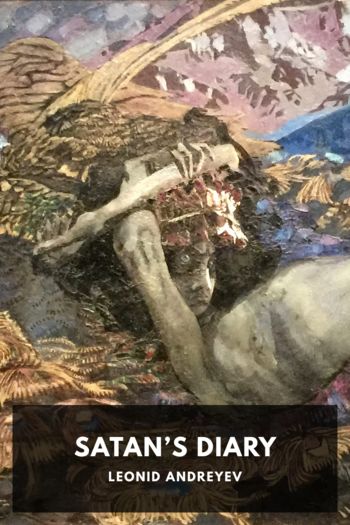Short Fiction - M. R. James (mobile ebook reader .txt) 📗

- Author: M. R. James
Book online «Short Fiction - M. R. James (mobile ebook reader .txt) 📗». Author M. R. James
That was the chief subject of his meditations at breakfast, and after it he began a systematic examination of the rooms to see which would suit his notions best. It was long before he found one. This had a window with an eastern aspect and that with a northern; this door the servants would be always passing, and he did not like the bedstead in that. No, he must have a room with a western lookout, so that the sun could not wake him early, and it must be out of the way of the business of the house. The housekeeper was at the end of her resources.
“Well, Sir Richard,” she said, “you know that there is but the one room like that in the house.”
“Which may that be?” said Sir Richard.
“And that is Sir Matthew’s—the West Chamber.”
“Well, put me in there, for there I’ll lie tonight,” said her master. “Which way is it? Here, to be sure;” and he hurried off.
“Oh, Sir Richard, but no one has slept there these forty years. The air has hardly been changed since Sir Matthew died there.”
Thus she spoke, and rustled after him.
“Come, open the door, Mrs. Chiddock. I’ll see the chamber, at least.”
So it was opened, and, indeed, the smell was very close and earthy. Sir Richard crossed to the window, and, impatiently, as was his wont, threw the shutters back, and flung open the casement. For this end of the house was one which the alterations had barely touched, grown up as it was with the great ash-tree, and being otherwise concealed from view.
“Air it, Mrs. Chiddock, all today, and move my bed-furniture in in the afternoon. Put the Bishop of Kilmore in my old room.”
“Pray, Sir Richard,” said a new voice, breaking in on this speech, “might I have the favour of a moment’s interview?”
Sir Richard turned round and saw a man in black in the doorway, who bowed.
“I must ask your indulgence for this intrusion, Sir Richard. You will, perhaps, hardly remember me. My name is William Crome, and my grandfather was Vicar here in your grandfather’s time.”
“Well, sir,” said Sir Richard, “the name of Crome is always a passport to Castringham. I am glad to renew a friendship of two generations’ standing. In what can I serve you? for your hour of calling—and, if I do not mistake you, your bearing—shows you to be in some haste.”
“That is no more than the truth, sir. I am riding from Norwich to Bury St. Edmunds with what haste I can make, and I have called in on my way to leave with you some papers which we have but just come upon in looking over what my grandfather left at his death. It is thought you may find some matters of family interest in them.”
“You are mighty obliging, Mr. Crome, and, if you will be so good as to follow me to the parlour, and drink a glass of wine, we will take a first look at these same papers together. And you, Mrs. Chiddock, as I said, be about airing this chamber. … Yes, it is here my grandfather died. … Yes, the tree, perhaps, does make the place a little dampish. … No; I do not wish to listen to any more. Make no difficulties, I beg. You have your orders—go. Will you follow me, sir?”
They went to the study. The packet which young Mr. Crome had brought—he was then just become a Fellow of Clare Hall in Cambridge, I may say, and subsequently brought out a respectable edition of Polyaenus—contained among other things the notes which the old Vicar had made upon the occasion of Sir Matthew Fell’s death. And for the first time Sir Richard was confronted with the enigmatical Sortes Biblicae which you have heard. They amused him a good deal.
“Well,” he said, “my grandfather’s Bible gave one prudent piece of advice—Cut it down. If that stands for the ash-tree, he may rest assured I shall not neglect it. Such a nest of catarrhs and agues was never seen.”
The parlour contained the family books, which, pending the arrival of a collection which Sir Richard had made in Italy, and the building of a proper room to receive them, were not many in number.
Sir Richard looked up from the paper to the bookcase.
“I wonder,” says he, “whether the old prophet is there yet? I fancy I see him.”
Crossing the room, he took out a dumpy Bible, which, sure enough, bore on the flyleaf the inscription: “To Matthew Fell, from his Loving Godmother, Anne Aldous, 2 September, 1659.”
“It would be no bad plan to test him again, Mr. Crome. I will wager we get a couple of names in the Chronicles. H’m! what have we here? ‘Thou shalt seek me in the morning, and I shall not be.’ Well, well! Your grandfather would have made a fine omen of that, hey? No more prophets for me! They are all in a tale. And now, Mr. Crome, I am infinitely obliged to you for your packet. You will, I fear, be impatient to get on. Pray allow me—another glass.”
So with offers of hospitality, which were genuinely meant (for Sir Richard thought well of the young man’s address and manner), they parted.
In the afternoon came the guests—the Bishop of Kilmore, Lady Mary Hervey, Sir William Kentfield, etc. Dinner at five, wine, cards, supper,





Comments (0)